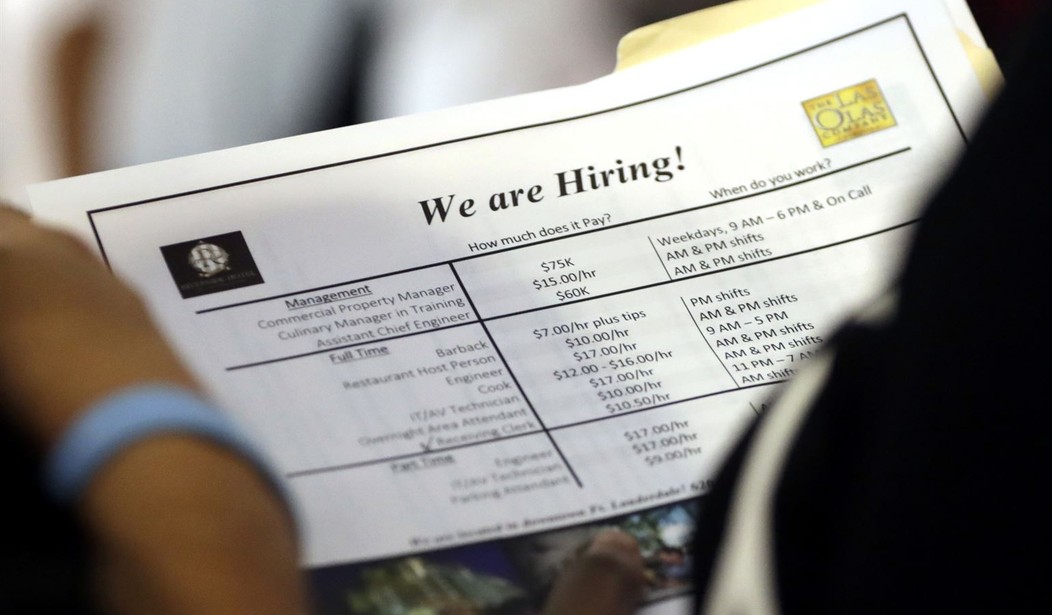Congress created the Public Service Loan Forgiveness program in 2007 in an attempt to attract people into professions like teaching, nursing and public-interest law. College graduates would be forgiven their student loans if they pursued a career in such professions. The Wall Street Journal reports the program is now in "disarray." Although 73,000 people have applied for debt forgiveness as of March 31, reports the Journal, citing Education Department figures, just 864 have had their loans erased.
While models are constantly changing -- from cars, to clothes -- only the education model remains the same, except for rising costs. That model says a college education is mandatory in order to obtain a good job and become self-sufficient. What if it isn't? What if massive college debt might be unnecessary?
A new study by Georgetown University, Center on Education and the Workforce has found that by next year, "65 percent of all jobs in the economy will require postsecondary education and training beyond high school." That means 35 percent of available jobs will not require a college degree.
The findings are significant because they offer a guide into the type of specialized education and acquired skills students will need to qualify for these jobs. In the past, a general liberal arts education was enough to find employment in many fields. As new industries emerge and existing ones expand, the jobs of the near future will require an education and training to fit employer requirements.
The implications are obvious. For many jobs and careers it will no longer be necessary to attend a four-year college, pay high tuition, along with room and board, and graduate with crushing debt that will take years, perhaps decades, to pay off.
Recommended
Some other findings from Georgetown's research that will be helpful as young people seek an education tailored to job requirements include: "Job openings in health care, community services and STEM (science, technology, engineering, mathematics) will grow the fastest among occupational clusters. Judgment/decision-making, communications, analysis and administration will be the four most in-demand competencies in the labor market.
The demand for physical skills has continued to decline over time, "except for 'near vision,' which is necessary to read computer screens and other types of documentation."
Even those who choose to pursue college degrees will benefit from knowing the types of jobs they can expect to get and design their education to fit those necessities.
The flip side, says the study, is that at the current rate of college graduates, the U.S. will lack 5 million workers with post-secondary education by next year. A combination of jobs opening up because of baby boomer retirements and the creation of new positions in existing and new industries means a total of 55 million job openings by next year. This is nothing short of phenomenal and is a contributing factor to the influx of immigration, both legal and otherwise. How many of those entering our country illegally have high skill levels?
Skills that are most valued, says the study, include "leadership, communications and analysis." Taking into consideration all occupations, "96 percent require critical thinking and active listening to be either very important or extremely important to success."
Parents and students should keep these findings in mind to spare themselves frustration and debt when deciding the right path to a meaningful and well-paying job in the new and ever-expanding economy. Otherwise, the jobs one is hoping to get after graduation may not be there and the parental basement could be the only alternative.

























Join the conversation as a VIP Member